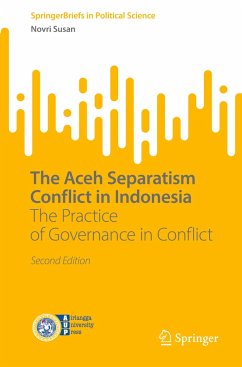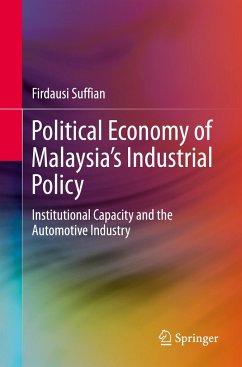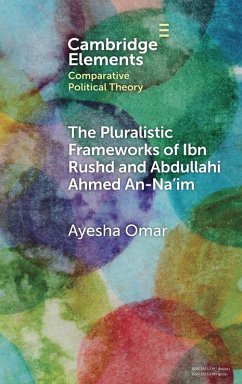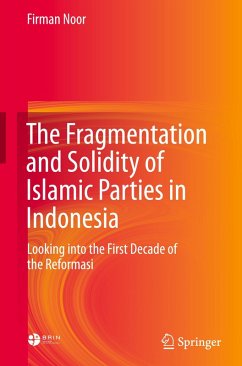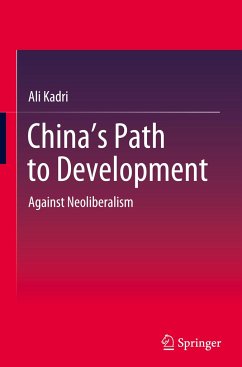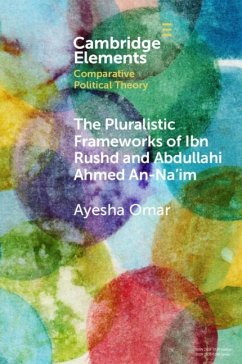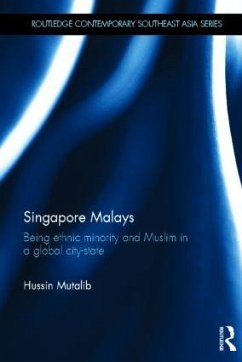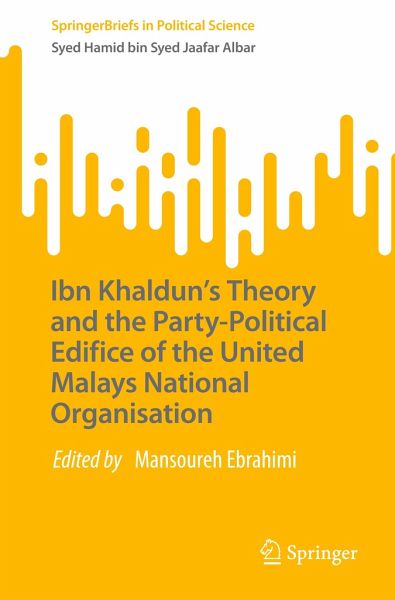
Ibn Khaldun's Theory and the Party-Political Edifice of the United Malays National Organisation

PAYBACK Punkte
13 °P sammeln!
This concise book examines the decline and erosion of UMNO as a dominant political party of Malaysia through the perspective of Ibn Khaldun's theory of asabiyyah and umran. It uses the qualitative method of data collection from Ibn Khaldun's original works. After discussing Ibn Khaldun's theory of asabiyyah and umran, UMNOs umranic contributions and erosion of Malay asabiyyah are discussed in detail. The research outlines how asabiyyah led to UMNOs rise to prominence, gain of political power, bringing of progress and development of Malaysia to an umranic stage before it started to decline and ...
This concise book examines the decline and erosion of UMNO as a dominant political party of Malaysia through the perspective of Ibn Khaldun's theory of asabiyyah and umran. It uses the qualitative method of data collection from Ibn Khaldun's original works. After discussing Ibn Khaldun's theory of asabiyyah and umran, UMNOs umranic contributions and erosion of Malay asabiyyah are discussed in detail. The research outlines how asabiyyah led to UMNOs rise to prominence, gain of political power, bringing of progress and development of Malaysia to an umranic stage before it started to decline and erode in concordance with the five stages of Ibn Khaldun's theory of rise and fall of civilizations. This book highlights that early leaders of UMNO played significant role in fostering group feeling and solidarity of the Malays (asabiyyah). Asabiyyah was the engine that propelled UMNO to transform the Malays and Malaysia to an umranic society. In conclusion, the later leaders of UMNO contributedto weakening of the Malay asabiyyah and the fall of UMNO from power in the 14th General Elections in 2018. The process of UMNOs decline and erosion of political power is primarily caused by the leaders' failures and shortcomings. The author, a Malaysian lawyer and long-standing Minister in the Prime Minister's Department, Minister of Justice, Minister of Defence, Minister of Foreign Affairs, and Minister of Home Affairs in the Barisan Nasional in Malaysia, concludes with the recommendation that for UMNO to be relevant again in the current political landscape, it must initiate new and serious approaches and initiatives to change itself and must focus on good governance and rule of law in a multi-ethnic Malaysian society. Relevant to scholars and practitioners in political science, sociology, and Islamic studies, this book is a landmark commentary on contemporary Malaysian politics, drawing from the author's own experience as a member of parliament in his various ministerial positions over three decades.






